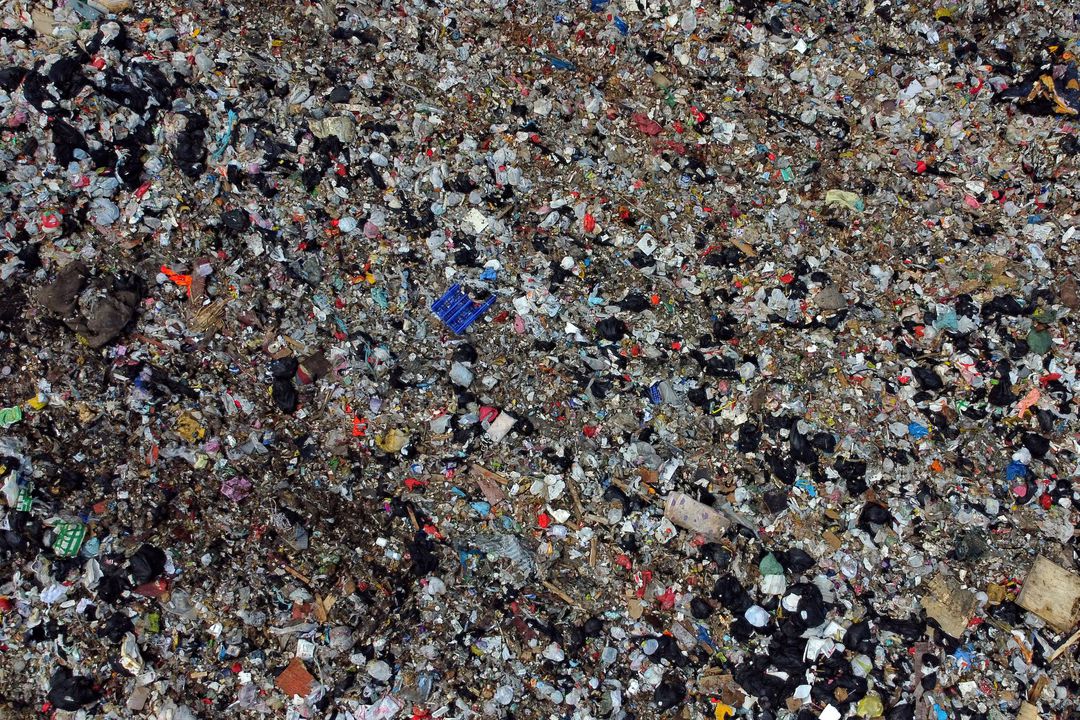Hong Kong’s garbage levy gets a new launch date
Hong Kong has been dealing with a trash problem for quite some time as one of the world's most densely populated cities.

A few minutes every morning is all you need.
Stay up to date on the world's Headlines and Human Stories. It's fun, it's factual, it's fluff-free.
The backstory: Hong Kong has been dealing with a trash problem for quite some time as one of the world's most densely populated cities. In 2004, the idea of a garbage levy (basically charging people for the trash they toss out) was introduced as a potential solution. It took a while, but in 2018, a bill was finally drafted and then passed in 2021. The plan was to kick it off after 18 months of preparation.
More recently: In 2021, the Hong Kong government released its Waste Blueprint for Hong Kong 2035, with the goal of reducing the amount of waste each person throws away by up to 45% and increasing recycling to around 55%. That year, only about 30% of the city's 4.15 million metric tons of trash was recycled, while the rest ended up in landfills.
Earlier this week, the environment bureau announced it would delay the launch date of the garbage levy. It turns out that waste collectors raised concerns about dealing with the enormous amount of waste during the winter holidays like Christmas and Chinese New Year. So, authorities realized they needed more time to work out the details.
The development: So, starting from April 1 next year, an average three-person household in Hong Kong will pay around HK$33 (US$4.20) a month for government-approved bags as part of the new garbage levy scheme (based on an estimate of creating about 13 liters of trash a day). But not everyone will have to pay right away. For the first six months, over one million families living in public flats, rural areas and residential blocks without owners' corporations will get 20 free bags. They’re still figuring out exactly how to distribute these bags to everyone that gets them.
The government will set up additional trash disposal points in rural areas and place large bins near covered housing blocks to make things more convenient. Plus, the government will give a monthly subsidy of HK$10 (US$1.20) to Comprehensive Social Security Assistance or Old Age Living Allowance recipients. The bags will come in nine different sizes, with prices set at HK$0.11 per liter. When that initial six-month exemption period ends, if you're caught using bags without government approval, you could face a HK$1,500 (US$192) fine.
Key comments:
“Some sectors, such as the cleansing service providers, have been appealing for postponing the implementation, in view of the expected large quantity of waste that will be disposed of around Christmas and Chinese New Year, as well as the manpower shortage during Chinese New Year,” said the environment bureau in a paper submitted to the Legislative Council.
“We have been discussing the garbage levy for more than a decade,” said Beatrice Siu Wing-yin, a senior public affairs officer at environmental group Greeners Action. “The average daily waste disposal volume in Hong Kong has reached 11,300 tonnes. If authorities continue to drag on, the daily disposal amount will continue to pile up.”
“It is ideal timing for the industry to learn a new waste management paradigm when the workforce is the most abundant,” said Environmental Services Contractors Alliance spokesman Raymond Yau Pui-lam. “Garbage volume peaks from October to March, but reaches its trough between April and June.”
"I am disappointed by the government when they had promised the public to impose it this year but now they have failed to do so," said Edwin Lau Che-feng, founder and executive director of The Green Earth to The Standard.




Comments ()